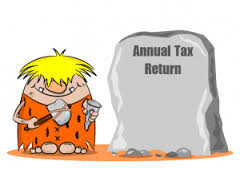
If you’ve seen the headlines this week you will have noted the numerous press articles on “death of the tax return”. You might have started celebrating or you might been left wondering what it all means for you as a sole trader running a small business.
I have to say that I was a little taken back by the dramatic headline and it took me a little bit of further analysis to work out what this meant for each of the various categories of people who are currently required to complete a tax return. So, if you have also been wondering how this affects you in self employment read on…
What’s a digital tax account?
The proposal announced in the budget this week is that individuals and businesses will in future be able to manage their tax affairs via a digital tax account. This will be pre-populated with information that HMRC already holds.
So, if you run a business but also receive employment income, you won’t need to dig around looking for your P60 at the end of the tax year. HMRC will pre populate your tax account with the income figures. Similarly, pension payments and investment income including all your bank and building society interest will automatically be pulled into your tax account.
What about the sole trader?
So, for many individuals, an annual tax return will no longer need to be completed. Great, but what about the sole trader? How will HMRC receive information on business income and expenditure? What about income from rental properties?
None of the detail as to how this will be managed has been clarified yet but a recent white paper titled “making tax easier: the end of the tax return” mentions
- the possibility that by 2020, small businesses will be able to link their accounting software to their HMRC tax account. Income and expense figures will feed directly into the tax account
- a new payment process will be introduced which would mean no more twice yearly payments. Instead sole traders would have the option to pay as they go so that they are not faced with one off tax bill months down the line.
The details are not explained but the implications point to sole traders having to input their income and expenses on a far more regular basis. This will come as a real shock to those small business owners who have been leaving their annual bookkeeping and accounting to just before the 31st January deadline.
The verdict for the sole trader
Although these announcements might be helpful to employees with few other sources of income, the self employed might well have almost exactly the same obligations in the future as they do now.
The actual tax returns might be abolished but the idea of providing the tax return information for each year is not going to go away. The information is just going to have to be provided in a different format and more frequently.
If HMRC get the proposed IT project working (and they haven’t the best track record) then although the proposed changes might initially prove harder work for the self employed, there are many advantages that will accrue; being better able to manage cash flow, more scope for tax planning and above all the avoidance of that mad rush around January each year!
It could work out all round but we now just need to wait for the detail which should be announced towards the end of 2015.
If you happen to own a rental property as well, I can’t see anyone’s workload changing in this area!
If you are worried and don’t understand fully how the recent budget announcements will affect your business do drop me line or leave me a comment below.
